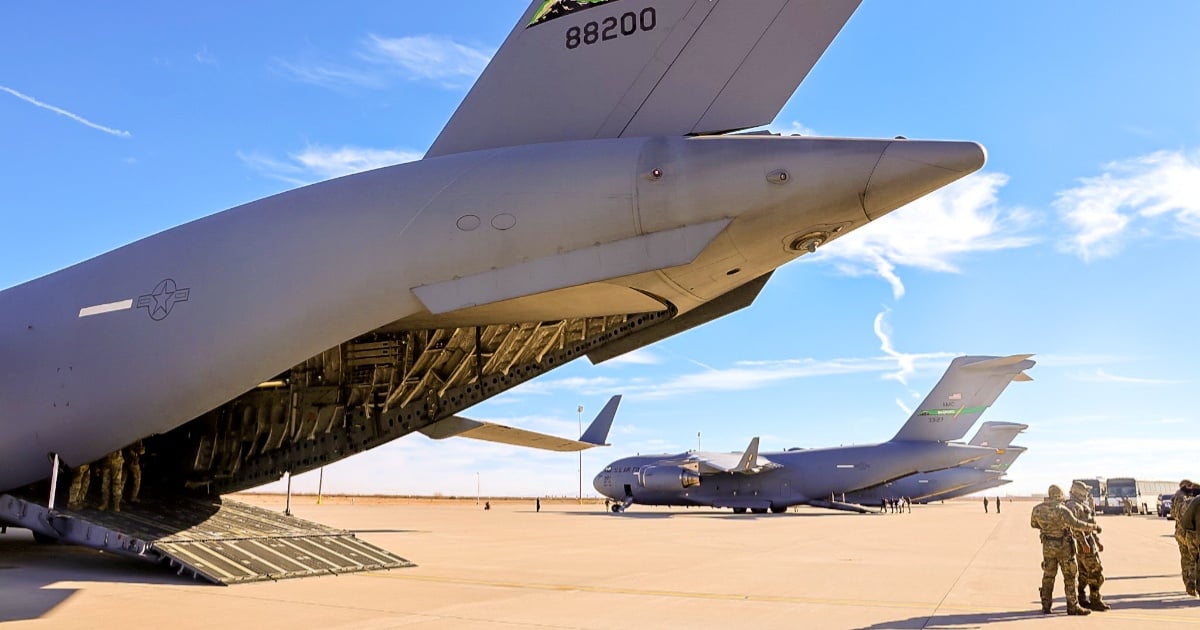The United States government is set to restart deportation flights to Venezuela soon, as confirmed by Tom Homan, known as the "Border Czar," this Friday. "These flights will occur within the next 30 days, but I can't specify the number yet; we're still ironing out those details," Homan told The New York Times.
Despite President Trump's non-recognition of Nicolás Maduro, who began a new term on January 10 amid allegations of electoral fraud by the opposition—which claims victory for Edmundo González Urrutia—last week, Trump sent Richard Grenell to Caracas. Grenell met with Maduro in an attempt to mend relations between the two nations, whose diplomatic ties have been broken since 2019.
An Unexpected Agreement Between Trump and Maduro
Following the meeting, the White House announced the release of six American citizens detained in Venezuela, and in return, secured Maduro's commitment to accept deported migrants. Symbolically, both leaders shook hands, with the Venezuelan parliament's president, Jorge Rodríguez, smiling in the background. Maduro's administration issued a statement affirming its intention to maintain a "dialogue among equals" with the U.S.
Days later, Maduro proposed a $10 million loan program to support returning Venezuelan migrants. This move suggests Caracas may be preparing for the arrival of deportees, though it has not officially confirmed it will accept all repatriated individuals. Currently, some Venezuelans deemed dangerous criminals are already held at Guantánamo Bay Naval Base, arriving on two flights conducted earlier this week, Tuesday and Thursday.
In total, there are 23 illegal immigrants at Guantánamo, though it's unclear if all are Venezuelans. The first group of ten was identified as members of the Tren de Aragua gang; in the second instance, Homeland Security Secretary Kristi Noem specified that all 13 were Venezuelans.
Venezuelans Residing in the United States
Hundreds of thousands of Venezuelans live in the United States, many under temporary migratory reliefs that have been revoked under President Donald Trump's administration, including the 2023 Temporary Protected Status (TPS). This decision leaves them vulnerable to Trump's ambitious deportation plans. However, amidst this seeming rapprochement, the U.S. seized a Venezuelan government-owned airplane on Thursday in the Dominican Republic.
The action, justified by alleged violations of export control laws and Washington sanctions, was announced by Secretary of State Marco Rubio during his official visit to the Caribbean island. In response, Maduro's government condemned the seizure as "blatant theft" on Friday.
Trump’s Strategic Shift on Venezuela
In his first term, Trump unsuccessfully attempted to overthrow Maduro, imposing economic sanctions, supporting opposition leader Juan Guaidó, and offering a $15 million reward for Maduro's capture on narcoterrorism charges. However, with the increasing wave of Venezuelan migrants in the U.S. and his electoral pledge to curb illegal immigration, the dynamics have shifted.
Now, Trump needs Maduro’s acceptance to repatriate Venezuelan migrants, giving the Caracas government a stronger negotiating position, as noted by The New York Times. Additionally, Venezuela holds at least five Americans and two U.S. permanent residents, according to the human rights group Foro Penal. This bolsters Maduro's negotiating leverage, potentially using these detainees as bargaining chips in future talks.
Potential U.S. Concessions to Venezuela
The agreement might also lead to other changes in Washington's policies toward Caracas. Possible measures include:
- Partial lifting of sanctions on the Venezuelan oil sector, a key source of revenue for Maduro's regime.
- Resuming direct commercial flights between the U.S. and Venezuela, suspended since 2019.
These actions could create tensions within the Republican Party. Venezuelan opposition leaders María Corina Machado and Edmundo González have criticized any relaxation of sanctions, arguing that Maduro is weakened and pressure must be maintained to force his ouster. Senator Marco Rubio, a staunch opponent of the Chavista regime, has also expressed dissatisfaction. In 2022, Rubio warned that deporting Venezuelans back to their home country would be "a very real death sentence" due to the oppressive conditions and humanitarian crisis.
Implications of U.S.-Venezuela Deportation Flights
What is the timeline for the resumption of deportation flights to Venezuela?
According to Tom Homan, these flights are expected to resume within the next 30 days.
How might this agreement impact U.S.-Venezuela relations?
The agreement could lead to improved diplomatic relations and potential easing of sanctions, but it might also cause friction within the U.S. political landscape.
Why is the U.S. government seizing Venezuelan assets?
The U.S. justified the seizure of Venezuelan assets, such as the airplane, due to alleged violations of export control laws and sanctions.
